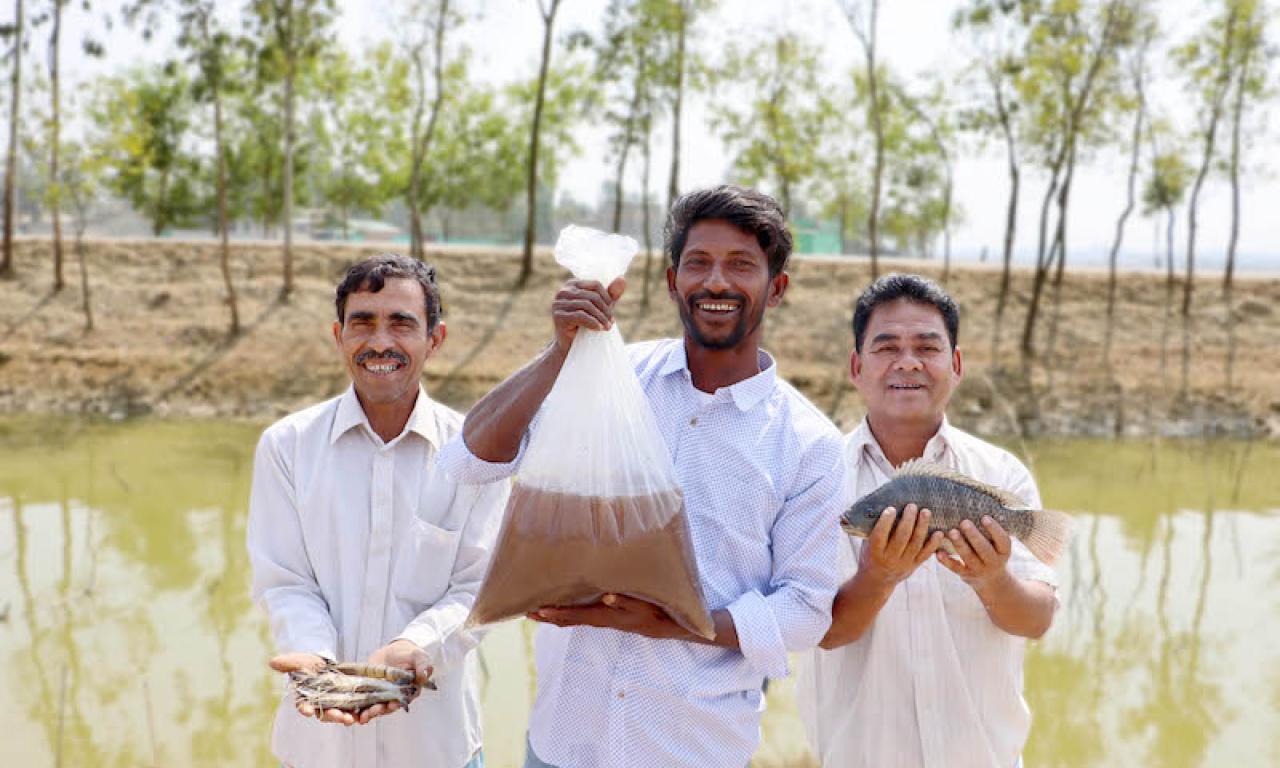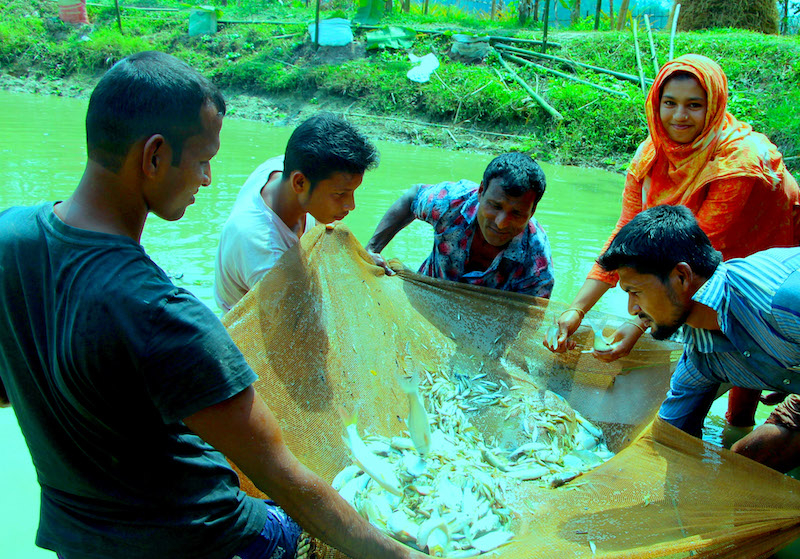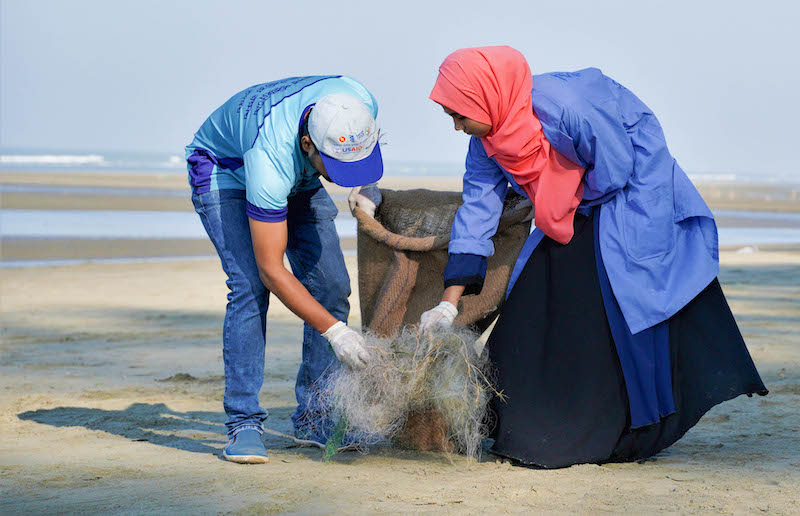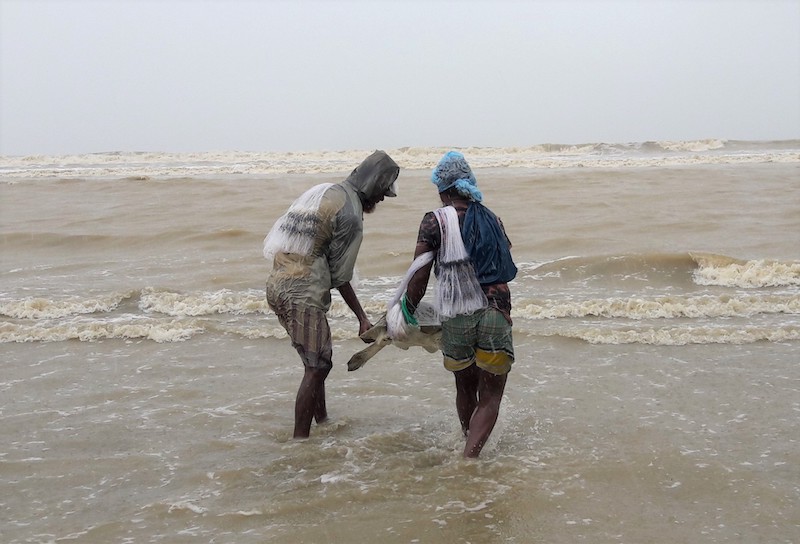
- Fish farming has expanded globally in order to improve food security, yet aquaculture practices are far from being environmentally friendly.
- WorldFish helps to conserve biodiversity and improve coastal fisheries while also promoting the use of climate-smart aquaculture technologies through various projects in Bangladesh.
- There are several things that actors in the fishing industry can invest in through actions that will pay dividends for Mother Earth.
Our planet continues to warm due to human activities. According to a UN report, 70 percent of Earth's land area has been transformed from its natural state due to the construction of settlements, roads and agriculture. Humans are altering the course of rivers, using and discarding plastic indiscriminately, emitting harmful greenhouse gases into the atmosphere and relying on fossil fuels to power automobiles and factories. As a result, biodiversity is becoming ever more endangered and global temperatures continue to rise.
The world's population is growing rapidly and some nations are struggling to feed, clothe and house their vast population. Agriculture contributes significantly to the human food supply, yet it is the principal cause of land degradation. As a result, numerous species’ habitats are vanishing.
Fishing has also expanded as a result of the growing population’s needs. Due to indiscriminate fishing in the rivers and seas, certain fish are caught so extensively that they are on the verge of extinction. Therefore, overfishing is a global problem that endangers our ecosystems and poses a threat to global food and nutrition security. Therefore, efforts to conserve fish populations are vital for sustainable fishing.
Developing aquaculture in a sustainable manner

Aquaculture is an effective solution to alleviate pressure on wild fish stocks but it must be done in an environmentally responsible manner. Globally, fish farming has expanded in order to improve food security, yet aquaculture practices are far from being environmentally friendly.
The aquaculture sector has resulted in some detrimental effects on the environment due to the lack of proper water management, poor quality fish feed, improper use of fertilizers and antibiotics, as well as poor waste management.
Understanding the importance of conserving the planet’s resources and preventing the Earth from being further polluted, WorldFish develops the fisheries and aquaculture sectors through research and innovation. In Bangladesh, WorldFish helps to conserve biodiversity and improve coastal fisheries while also promoting the use of climate-smart aquaculture technologies through various projects.
Deploying various innovations in Bangladesh

The Suchana: Ending the Cycle of Undernutrition in Bangladesh project aims to introduce climate-smart aquaculture in flood-prone areas of Bangladesh’s greater Sylhet region. Average fish production doubled to 2.5 metric tons per hectare after farmers utilized WorldFish’s climate-smart technology.
The Introducing Circularity Through Climate-Smart Aquaculture in Bangladesh (Artemia4Bangladesh) project intends to improve agricultural and food systems in Bangladesh’s Cox’s Bazar area while also developing climate-smart technologies through the production of Artemia cysts and biomass in salt fields. Previously, only salt was cultivated for a few months out of the year but now, fish and shrimp are cultivated alongside Artemia while salt production is underway.
The Enhanced Coastal Fisheries in Bangladesh Phase II (ECOFISH II) project works on biodiversity conservation and environmental protection. The project aims to increase fishers’ resilience, improve ecosystem health, protect megafauna, empower women, conserve biodiversity and manage marine protected areas. ECOFISH II also promotes an ecosystem approach to fisheries management (EAFM), a method for managing fisheries in a more comprehensive manner.
Investing in our planet’s future

In line with this year's Earth Day theme ‘Invest in our planet’, a continuation from last year, even modest efforts could go a long way in investing in the future of the planet. A collective effort is required for the well-being of the planet and everyone should be invested in reducing one’s carbon footprint.
While fishing and aquaculture are crucial components in ensuring global food security, those who engage in them must always take precautions to prevent pollution and threats to biodiversity. Fishers and farmers have vital roles to play in saving the planet.
Investments do not necessarily have to be in monetary form. There are several things that actors in the fishing industry can invest in through actions that will pay dividends for Mother Earth such as ensuring oil, plastics and other wastes do not fall off their boats while at sea, investing in the development and empowerment of women and youth so they can also play a major role in the green movement, farming seaweed and green mussels that can help improve water quality while diversifying farmers’ livelihoods, educating fishers on avoiding the use of plastic and discarding nets and other non-biodegradable wastes responsibly, as well as planting crops in their backyards and along ponds to increase atmospheric oxygen.
Other actions that can be taken include shifting to fossil fuel-free energy systems, using better quality fish feed that does not pollute the water, farming more productive species to obtain higher yields within the same space to protect forests and biodiversity, adopting climate-smart innovations that help farmers better adapt to climate change and also reduce carbon footprint, as well as increasing technological investment in fisheries and aquaculture industries to control waste management.
